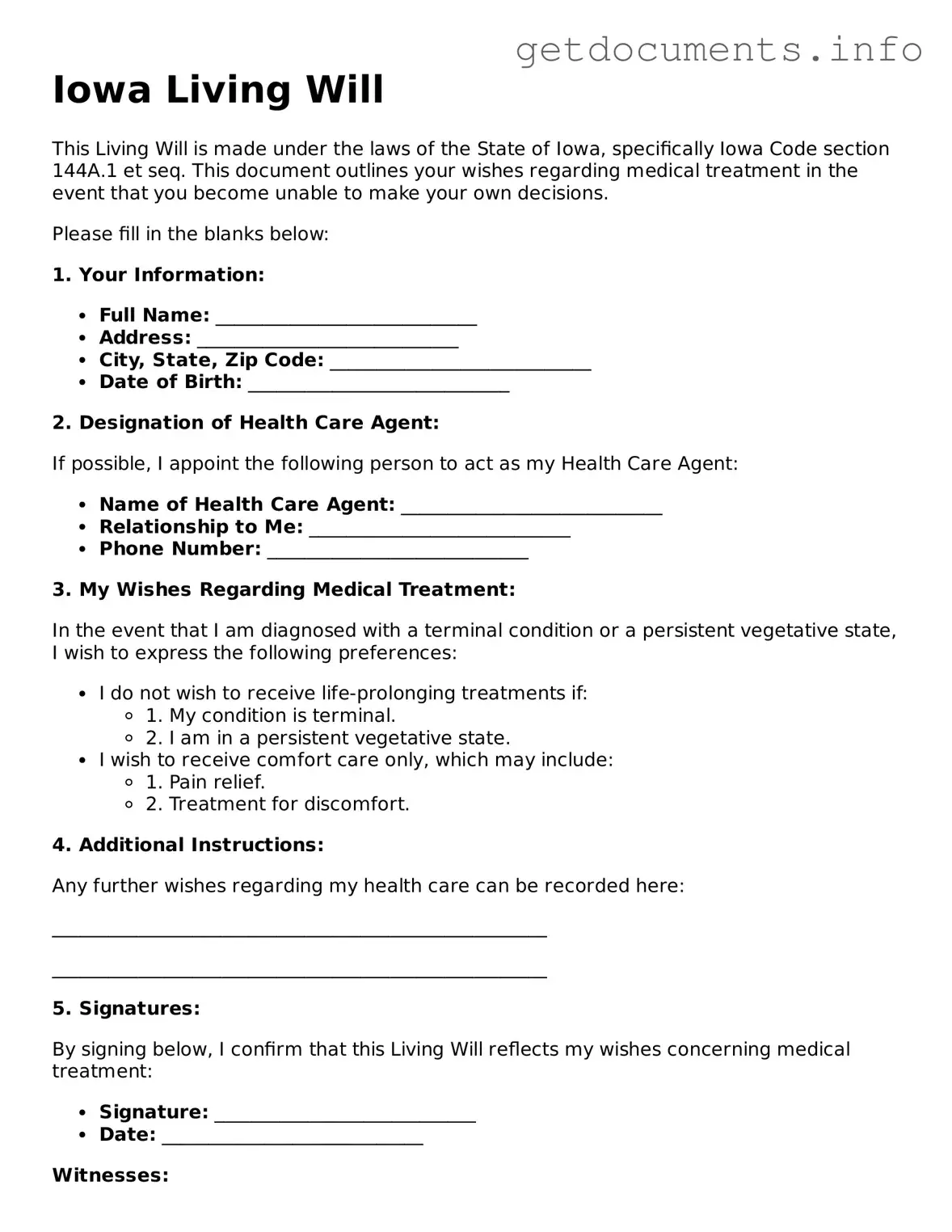Free Living Will Template for Iowa
A Living Will is a legal document that allows individuals in Iowa to express their wishes regarding medical treatment in the event they become unable to communicate their preferences. This form provides clarity for healthcare providers and loved ones, ensuring that a person's desires are respected during critical times. To take the next step in making your wishes known, consider filling out the form by clicking the button below.
Access Living Will Editor

Free Living Will Template for Iowa
Access Living Will Editor
Got places to be? Complete the form fast
Fill out Living Will online and avoid printing or scanning.
Access Living Will Editor
or
⇩ PDF File
